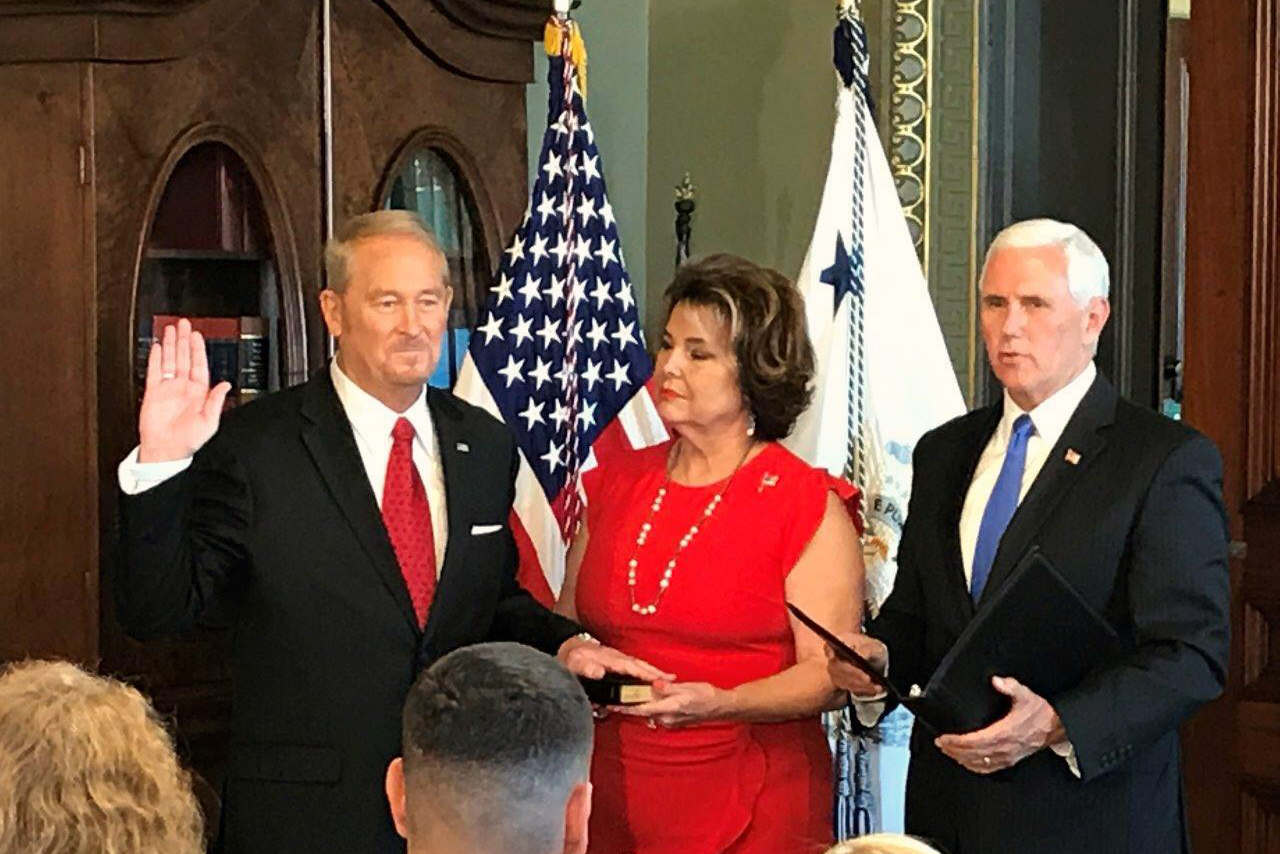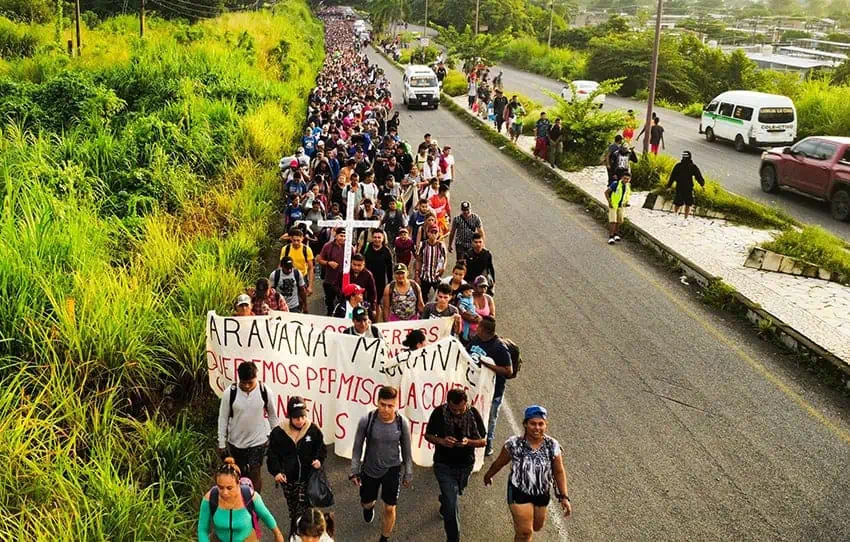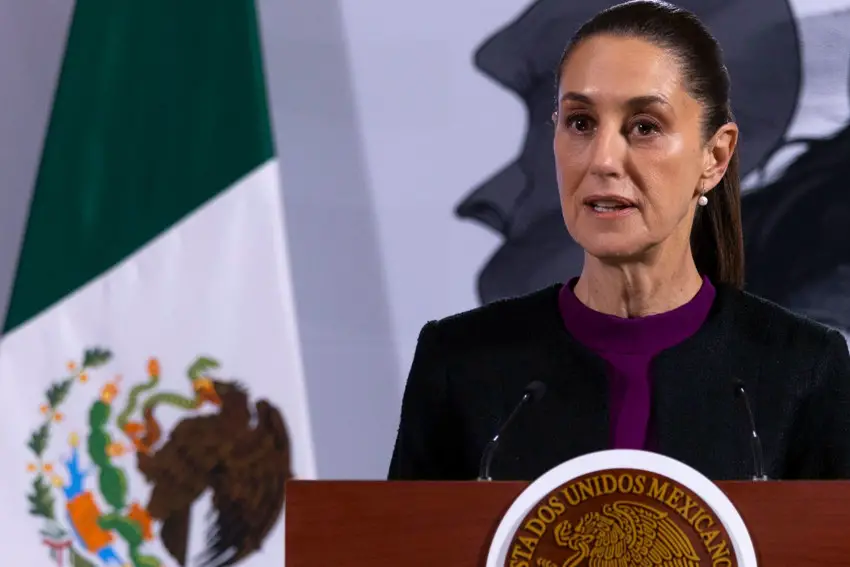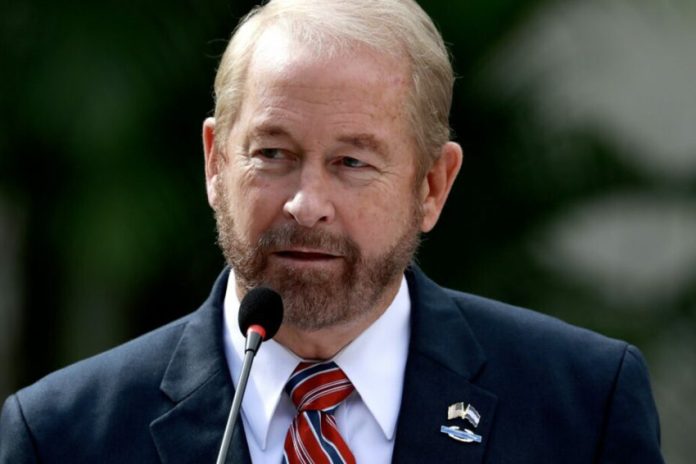United States President-elect Donald Trump announced Tuesday that former United States ambassador to El Salvador Ronald Johnson is his pick for ambassador to Mexico during his second term.
“I am pleased to nominate Ronald (Ron) Johnson to serve as the United States Ambassador to Mexico. Ron will work closely with our great Secretary of State Nominee, Marco Rubio, to promote our Nation’s security and prosperity through strong America First Foreign Policies,” Trump said on social media.

Johnson — an army veteran and former official with the U.S. Central Intelligence Agency (CIA) — served as ambassador to El Salvador during the final 16 months of Trump’s first term as president.
The president-elect wrote on the social media platform that he owns, Truth Social, that as ambassador to El Salvador, Johnson “worked tirelessly with Salvadoran authorities and our team to reduce violent crime and illegal migration to the lowest levels in History.”
“… Congratulations Ron. Together, we will put an end to migrant crime, stop the illegal flow of Fentanyl and other dangerous drugs into our Country and, MAKE AMERICA SAFE AGAIN!” Trump wrote.
If his appointment is approved by the U.S. Senate, Johnson — who shares his name with a Republican Party senator from Wisconsin – will replace Ken Salazar as U.S. Ambassador to Mexico.
Salazar, a former U.S. senator and secretary of the interior during Barrack Obama’s first term as president, has been ambassador to Mexico since 2021. He succeeded Christopher Landau, who was ambassador to Mexico during Trump’s first term as president and was tapped by the president-elect this week to serve as deputy secretary of state under Rubio.
Johnson will be tasked with a key role in the second Trump administration — helping to manage the United States’ relationship with its largest trading partner, a country with which it shares a 3,145-kilometer-long border that is currently far too porous for the president-elect’s liking.

In late November, Trump pledged to impose a 25% tariff on all Mexican and Canadian exports to the United States on the first day of his second term as U.S. president due to what he called the “long-simmering problem” of migrants and drugs entering the U.S. via Mexico and Canada.
He said that the tariffs would remain in effect “until such time as Drugs, in particular Fentanyl, and all Illegal Aliens stop this Invasion of our Country!”
Johnson could play a key role in the Trump administration’s negotiations with Mexico as it seeks to achieve those stated objectives.
Who is Ron Johnson?
A 2019 U.S. Department of State report published after Johnson’s nomination as ambassador to El Salvador noted that Johnson had “served the United States government for over four decades, first as an officer in the U.S. Army, and then as a member of the intelligence community.”
Prior to taking up the ambassador’s position in El Salvador, he served as the CIA’s Science and Technology Liaison to the U.S. Special Operations Command, in Tampa, Florida, according to the report.
“Previously (2013-2107), he was Special Advisor to the U.S. Southern Command in Miami managing collaboration between the Command and the Intelligence Community, the State Department, the CDC, the FBI, the Department of Homeland Security, USAID and others,” the State Department said.
The State Department report also noted that Johnson had had “substantive engagement on a wide range of regional issues including refugees, counternarcotics, counterterrorism, human rights and tropical virus disease control.”
It said that he had lived in Latin America for more than five years and noted that he speaks Spanish.
In his social media post on Tuesday, Trump highlighted that Johnson “served our Country for over twenty years with the Central Intelligence Agency after a distinguished career in the U.S. Army as a Green Beret.”

“He graduated from the National Intelligence University with a Master of Strategic Intelligence,” he added.
A statement published by the U.S. Embassy in El Salvador in January 2021 to announce the end of Johnson’s term as ambassador noted that he arrived in the Central American country in 2019 with his wife, Alina Johnson. Johnson has four children and five grandchildren, according to a short profile that appeared on the website of the U.S. Embassy in San Salvador.
Sheinbaum: ‘We’re going to defend our sovereignty’
At her morning press conference on Wednesday, President Claudia Sheinbaum acknowledged that Trump had announced his pick for ambassador to Mexico.
Speaking more broadly about the bilateral relationship between Mexico and the United States, she stressed that she won’t allow Mexico to be subordinated in any “collaboration” or “coordination” that her government enters into with its U.S. counterpart.
The bilateral relationship will “always” be a relationship of “equals,” she said.

“We have to defend that,” she said before asserting that there was “a lot of subordination” during the 2006–2012 presidency of Felipe Calderón.
“With us, there won’t be. We’re going to collaborate [with the United States] … but without subordination,” Sheinbaum said.
She said that Mexico will continue to collaborate with the United States on efforts to combat drug trafficking to the U.S. but emphasized that Mexico wants the U.S. to do its part to reduce the number of weapons flowing south.
“It’s not just a matter of drug trafficking … but also the violence generated in Mexico with the entry of weapons [from the U.S.],” Sheinbaum said.
“… We want a reduction in violence and construction of peace,” she said.
“We want homicides and other high-impact crimes to go down, many of which are linked to organized crime,” Sheinbaum said, adding that achieving the objective requires a reduction in the number of weapons coming into Mexico from the United States.
“That’s why I say that with this ambassador or others, we’re going to defend our sovereignty, our condition of equality [with the United States], and we’re going to collaborate and cooperate on everything that is required, but always in the interest of the people of Mexico and the nation,” she said.
Mexico News Daily
